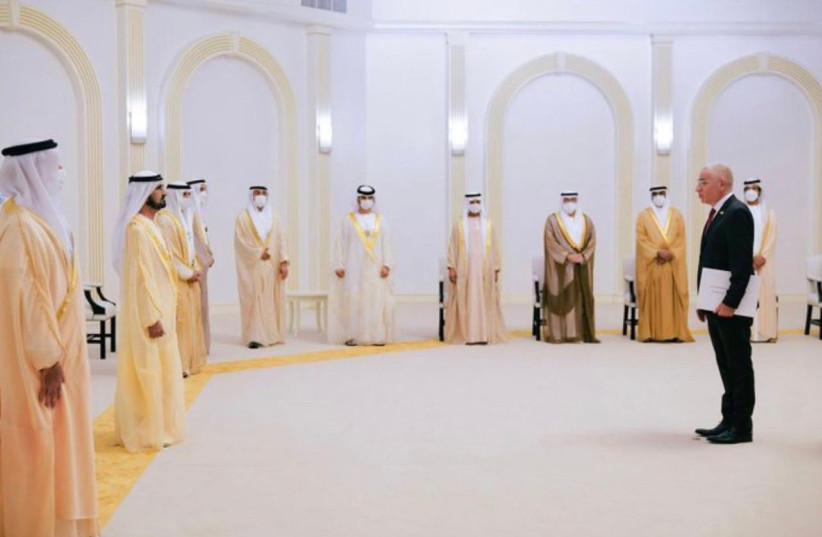Israel and the UAE began talks for establishing a free-trade agreement when Israel’s Economy and Industry minister, Orna Barbivai, met her Emirati colleague, Abdulla bin Touq Al Mari, to launch discussions on Monday night for a deal that will significantly strengthen trade between the two countries.
Since the Abraham Accords were signed in September 2020 normalizing relations between Israel and the UAE, trade between the two countries has increased dramatically. While trade between the two was about $125 million in 2020, that figure reached nearly $500m. in the first seven months of 2021.
The Foreign Trade Administration anticipates that these figures can continue to grow at a rapid pace and reach much higher levels.
Some have estimated that trade will exceed $1 billion this year and reach $3b. within three years. That does not include direct foreign investment between the two countries, which will likely reach tens of billions of dollars.
“This meeting opens the door to the many meetings on the way, and there is no doubt that this agreement will help significantly strengthen trade between the countries, remove barriers, and expand economic cooperation,” Barbivai said. “I hope that we will be able to realize the enormous potential inherent in the friendship between Israel and the United Arab Emirates.”


Ohad Cohen, director of the Foreign Trade Administration who is leading Israel’s negotiators, said, “We intend to conclude a meaningful and comprehensive agreement with our fellow colleagues, which will include, among other things, issues relating to trade in goods including regulation and regulation, customs, trade in services, government procurement, e-commerce and the preservation of intellectual property rights.”
Economic relations between Israel and the UAE have been incredibly warm and fruitful since former US president Donald Trump first announced the normalization agreement in August 2020. The two countries have signed a number of collaboration agreements in different fields, and Israel announced in the summer that it would open an economic interests office in Abu Dhabi to boost economic relations with Gulf states and the broader Arab world.
